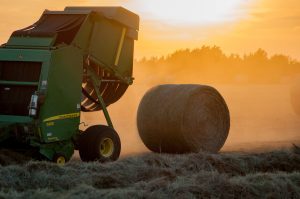By: Alonzo McDonald, South Carolina High School Agriculture Teacher
Everybody knows the song, “Old McDonald had a farm.” Well, that song is about my dad. He’s the McDonald that had the farm…and the cows, and the peacocks, the ducks, the hogs and the mules. I’m the McDonald that took my passion for agriculture, which developed at a young age, and turned it into a career as an agricultural education teacher. Often, people believe teachers of elective courses are not concerned with literacy; however that is not the case. When teaching an elective course, you have to come up with creative ways to motivate students to engage in content literacy. I have found that I can foster student literacy through the community engagement of my students.
One of the cornerstones of agricultural education programs is the desire to create productive citizens who serve their community. Through the Agricultural Education Program and Future Farmers of America (FFA) at Manning High School, students are molded into being model citizens that willingly give back to their community through various events and community partnerships that continue throughout the year. The motto of FFA reads “Learning to Do, Doing to Learn, Earning to Live, Living to Serve.” The last line, “living to serve” is one that I think the students grasp without even realizing it, because it becomes so embedded in our work in and out of the classroom. When you connect the last line of the motto with the first line, “learning to do,” students are equipped with the tools needed to successfully give back to the community that made them.
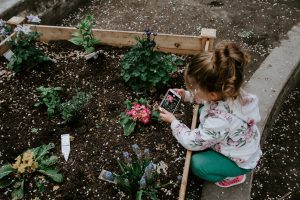
Through various in class activities, articles from agriculture magazines, and hands-on experiences students gain content knowledge they can put to use and pass on to younger students, in one of our strongest community partnerships, at Manning Early Childhood Center (MECC). Students within the agriculture program are able to explain the content that they have learned throughout the semester in a way the younger students are able to understand and use as they work on the raised bed garden at MECC. My students are able to teach these younger students how to transfer this knowledge into a useful skill (i.e. seed depth and spacing, watering needs, pollination, importance of fertilizer, plant parts, etc.) that can be used in the school garden. When my students are explaining to four and five year olds the needs of plants, and seeing that the younger kids are actually understanding it, brings me joy. As a teacher, being able to see the products of our toil is always rewarding.
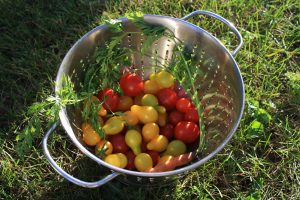
Having good role models for students to emulate is important. Through a consistent partnership with the Clarendon County Master Gardeners, my agriculture students have learned ways to pass on agriculture knowledge to others. The master gardeners model the ways in which experiential knowledge can be transferred through shared gardening experiences. My students then use what they have learned in their interactions with the master gardeners, with the students at MECC. The master gardener volunteers are able to bring in their real-world knowledge and experiences to help enhance the students understanding of not only the task-at-hand, but meaningful life experiences. Through this partnership, students are able to experience what it feels like to have someone giving back to the community and investing in the students at our school. As a result, students are more willing and eager to gain a better understanding of agriculture so that they can pay it forward.
Several students have gained a new appreciation for different aspects of agriculture because of these partnerships and have taken additional steps to further enhance their knowledge through research. Students are more willing to engage in learning, because they want to be able to share their knowledge with younger students and understand the information they learn from the master gardeners. As a result of community partnerships, students learn to use the agriculture content vocabulary, which supports their learning in my class and future agricultural classes they may take in the future.
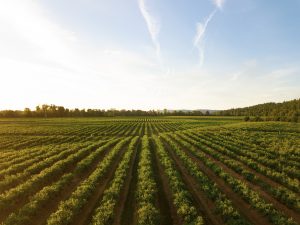
Agriculture is an important part of today’s society that is sometimes overlooked. As the global population increases, we need to make sure that our appreciation for what agriculture provides continues to increase, so that we have future generations who are interested in agriculture and want to contribute to the field of agriculture. There are many initiatives and programs that are in place to encourage the younger generations to be more interested in agriculture. Through partnerships with different agricultural organizations, the youth are being exposed to the many different aspects of agriculture. My challenge to you is expose your students to some of the many different avenues that lead to the wonderful world of agriculture.
About the Author
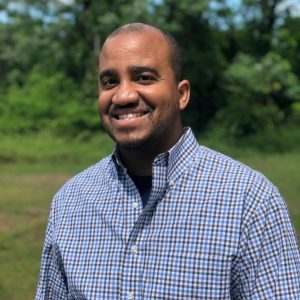
Alonzo McDonald is an Agricultural Education Teacher at Manning High School, in Manning, South Carolina. Alonzo earned his Bachelor of Science in Agricultural Education from Clemson University. He also holds a Masters of Education in STEM Leadership from American College of Education.

